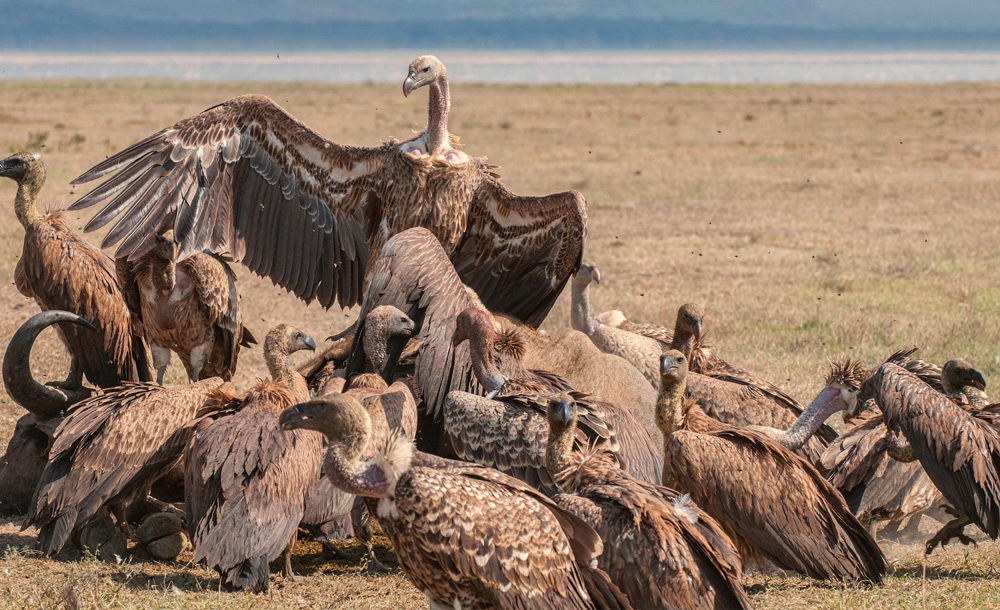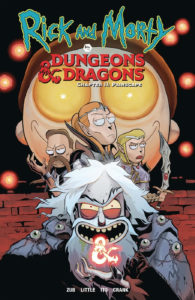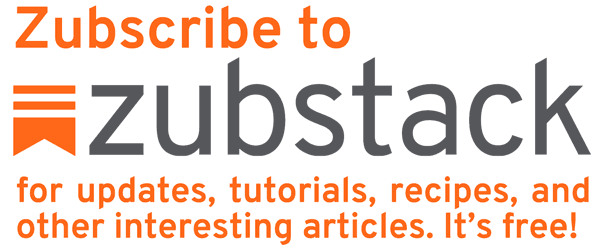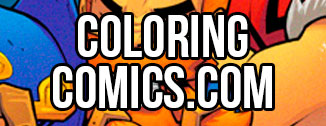A brand new comic book publisher announces their arrival with a glitzy series of big projects and big promises. Within a few years, they implode and the rights to titles they published become hopelessly trapped in a legal labyrinth that may never get figured out.
Sound familiar?
If you’ve been in and around the North American comic industry, it should. That same excitement-to-apocalypse scenario has played out at least a dozen times over the past forty years. I’ve watched this cycle time and time again with independent comic publishers who try to build their foundation on ‘creator-owned’ titles that lock away rights in perpetuity and page rate promises that crumble when boisterous external funding runs out.
To help people avoid this awful ‘tradition’ of predatory publishing, here are 12 important warning signs to look out for:
• Publisher pops up out of nowhere with bold claims and unknown/vague sources of funding.
• Publisher tries to launch a ‘universe’ of titles (especially superheroes) all at once and you’ve never even heard of them before.
• Publisher claims to be ‘more than just comics’ and makes big media promises without a track record of work adapted into any other mediums at all.
• Publisher snaps up a bunch of existing independent books all at once to ‘strengthen their brand.’
• Publisher promises too-good-to-be-true page rates (because they don’t intend to actually follow through on paying them).
• Publisher says they will let creators keep ‘the copyright’ to their work, while they handle the trademark and media rights.
• Publisher’s marketing and promotion has almost nothing to do with creators or their work.
• Publisher’s social media presence is smaller than most indie creators.
• Publisher seems to appear out of nowhere at conventions with a large booth and is flush with branding/sponsorship-style marketing before they’ve put out a single book.
• Publisher uses movie/TV/other media personalities to front their titles without crediting or promoting the artists and writers making the actual comics.
• Publisher will not negotiate on any points in their contract. They claim every creator operates under the ‘same deal.’
• You never actually see any of a publisher’s books in a comic shop, bookstore or even at their convention booth but, according to their marketing, they have a bunch of titles ready to be turned into movie/TV properties.
Don’t get me wrong, there are predatory indie film, music, prose and game companies as well (and most of the same warning signs covered above also apply), but the lower start up costs and movie/TV pitch-friendly packaging of comics seems to lend itself to these kinds of companies launching with all kinds of fanfare and then flaming out.
Most of these predatory publishers seem to operate on a simple 3-step model:
1) Acquire or generate large amounts of intellectual property as quickly as possible.
2) Pray that they can make a media deal and/or be acquired by a bigger corporate fish.
3) The people in charge profit. Everyone else gets screwed over.
When you’re starting out, I know that any and all credits feel like the path to legitimacy and being considered a true ‘pro’, but please don’t rush into any publishing deal for your original creations without carefully checking the paperwork.
Get a lawyer to review the legal paperwork you’re about to sign. Whatever you pay for that service will be worth it because they can outline exactly what the legal ramifications are and how that paperwork might be wielded against you in a worst case scenario down the road.
Back in 2014 when I pitched Wayward, we got a lot of interest. In turn, I received potential contracts to review from many of the creator-owned publishers in business at that time. When my lawyer and I sat down and reviewed all the paperwork, many of them had deeply unfavorable terms or ‘snake trap’-style clauses built in – ways a publisher could hide profits in and around other expenses, give themselves a disproportionate amount of earnings from our work, negotiate and sign media contracts on our behalf without any communication or approval required, or seize creative control and ownership in perpetuity with very little recourse to fight it.
One of the contracts was so bad, so ridiculously bad, that my lawyer said something to me I’ll never forget-
“If you signed this terrible contract I would have to stop representing you on the spot, because clearly you have no respect for yourself or your hard work and everything I thought I knew about you would be in question.”
(There’s a reason why Wayward, Skullkickers, and Glitterbomb were published by Image Comics. No company is perfect, but the creator-owned contract at Image Central is one of the most creator-friendly anywhere with ownership rights retained and few other strings attached.)
If you do jump into a publishing deal with a new and possible fly-by-night publisher, make sure you do it with eyes open – take the paycheck, cash it quickly, and mentally file that project under “Work for hire with slim chance of benefits” because in many cases that is the truth of the contract you signed.
Even then, before you sign anything, I also recommend you reach out to other creators currently working with that same publisher, even if you don’t know them beforehand, and make sure they’re being treated well and getting paid on time. There’s no guarantee there won’t be future problems, but some due diligence is better than none.
I don’t know of a single creator who wouldn’t respond to a polite message asking about a company they work with:
If things are good – they’re happy to tell you.
If things are bad – they’re eager to warn other people away.
One final point-
Legitimacy comes from the quality of work you create, not a particular company’s logo on your project.
There are more ways to get your work out into the world and independently fund creative projects than ever before. I wish crowdfunding and Patreon had been around when I began my career in the late 90’s/early 00’s.
A bunch of us started right here on the web, creating original work and learning the craft of comics, bit by bit. It may have taken us longer to build up legitimacy that way, but we kept ownership of our creations and quite a few of us have been able to carve out a readership and long term success in a business not known for its stability.
If you found this post helpful, feel free to let me know here (or on Twitter), share the post with your friends and consider buying some of my comics or donating to my Patreon to show your support for me writing this tutorial post instead of doing paying work. 😛









 Zub on Amazon
Zub on Amazon Zub on Instagram
Zub on Instagram Zub on Twitter
Zub on Twitter
Thank you Jim for sharing tips about predatory publishers. I found out about you from the proko marvel art of storytelling series. It’s great to have famous marvel artists teach the next generation of comic book artists.